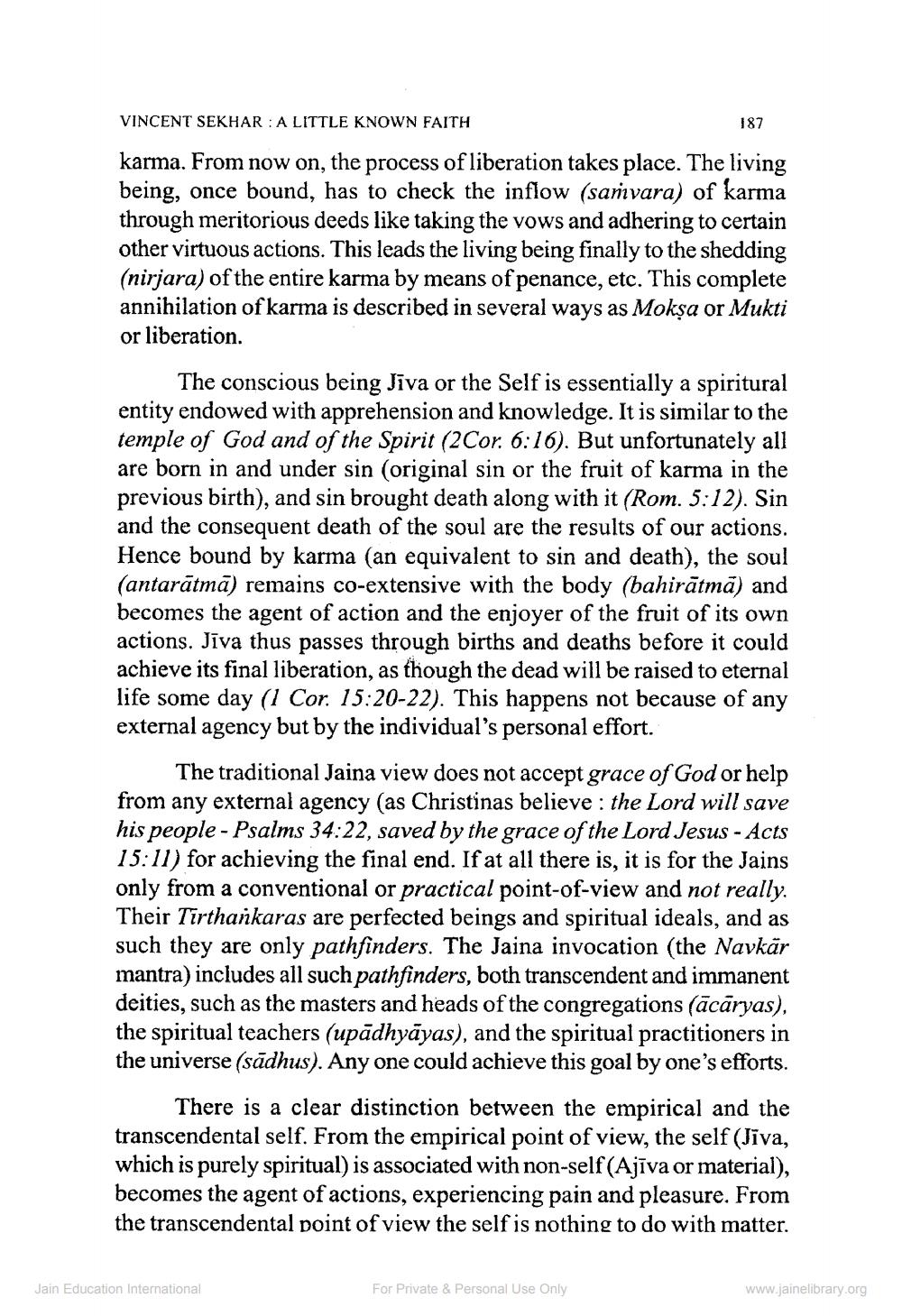________________
VINCENT SEKHAR A LITTLE KNOWN FAITH
karma. From now on, the process of liberation takes place. The living being, once bound, has to check the inflow (samvara) of karma through meritorious deeds like taking the vows and adhering to certain other virtuous actions. This leads the living being finally to the shedding (nirjara) of the entire karma by means of penance, etc. This complete annihilation of karma is described in several ways as Mokṣa or Mukti or liberation.
The conscious being Jiva or the Self is essentially a spiritural entity endowed with apprehension and knowledge. It is similar to the temple of God and of the Spirit (2 Cor. 6:16). But unfortunately all are born in and under sin (original sin or the fruit of karma in the previous birth), and sin brought death along with it (Rom. 5:12). Sin and the consequent death of the soul are the results of our actions. Hence bound by karma (an equivalent to sin and death), the soul (antarātmā) remains co-extensive with the body (bahirātmā) and becomes the agent of action and the enjoyer of the fruit of its own actions. Jīva thus passes through births and deaths before it could achieve its final liberation, as though the dead will be raised to eternal life some day (1 Cor. 15:20-22). This happens not because of any external agency but by the individual's personal effort.
187
The traditional Jaina view does not accept grace of God or help from any external agency (as Christinas believe the Lord will save his people - Psalms 34:22, saved by the grace of the Lord Jesus - Acts 15:11) for achieving the final end. If at all there is, it is for the Jains only from a conventional or practical point-of-view and not really. Their Tirthankaras are perfected beings and spiritual ideals, and as such they are only pathfinders. The Jaina invocation (the Navkär mantra) includes all such pathfinders, both transcendent and immanent deities, such as the masters and heads of the congregations (ācāryas), the spiritual teachers (upadhyāyas), and the spiritual practitioners in the universe (sadhus). Any one could achieve this goal by one's efforts.
There is a clear distinction between the empirical and the transcendental self. From the empirical point of view, the self (Jiva, which is purely spiritual) is associated with non-self (Ajīva or material), becomes the agent of actions, experiencing pain and pleasure. From the transcendental point of view the self is nothing to do with matter.
Jain Education International
For Private & Personal Use Only
www.jainelibrary.org




